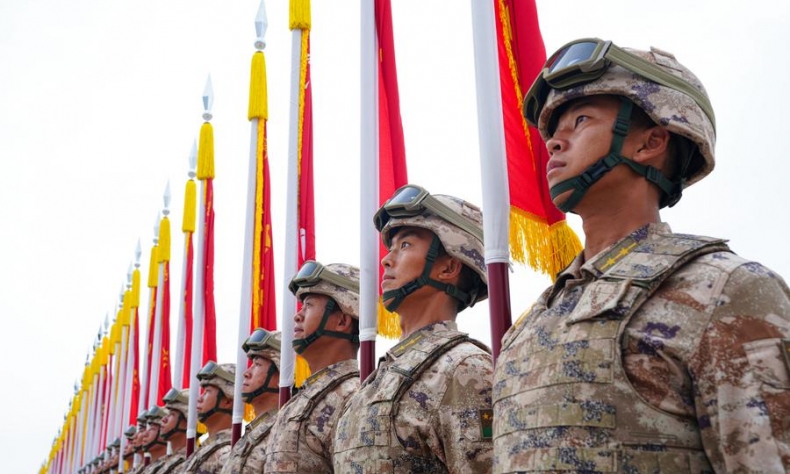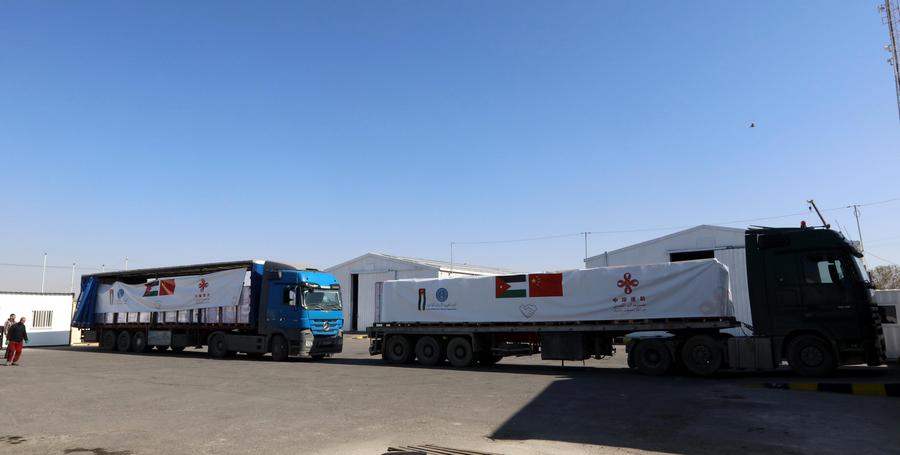China’s Push for International Peace Matters More Than Ever

The trend is clear: As China becomes a more influential player on the global stage, it has used multiple soft power methods to make the world a better place.
This year marks the 80th anniversary of the victory of the Chinese People’s War of Resistance Against Japanese Aggression and the World Anti-Fascist War, prompting widespread reflection on the past, present and future.
Responsible public officials and private citizens alike are examining historical lessons to help ensure the horrors of war in the 1930s and 1940s are never repeated. The familiar warning that those who fail to learn from history are doomed to repeat it echoes loudly.
We will examine here some of China’s activities in preventing conflict and contributing to world peace, but first, let’s take a snapshot of the current global environment.
The international climate right now is unsettled. The conflict between Russia and Ukraine, now more than three years old, and the more recent Israeli aggression and genocide in Gaza, draw global headlines daily. However, domestic conflicts — whether insurgencies or outright civil wars — in multiple places across the globe continue even without consistent media attention. According to one estimate, the 10 worst conflicts last year led to roughly 130,000 deaths. Man’s inhumanity to man continues.
However, war explains only part of the ongoing tensions. Consider hostile actions by certain countries that have chosen to abandon longstanding international norms related to trade, climate change, global health, free speech and more. Whether through executive fiat or more complex acts, these nations make the world less healthy, less wealthy and less safe. Perhaps still worse is the smug look on the faces of these leaders who appear convinced that arrogance deserves applause.
In response, critics worldwide — from social media users to academic researchers — are scrutinizing the military histories of various nations over the past 80 years. These comparisons often highlight China’s peaceful record, as it stands among the few major countries that have not initiated international conflicts during this period.
China’s contributions to global peace, however, extend well beyond military restraint. The country has actively promoted international stability through multiple initiatives, with three particularly noteworthy examples.
During the first year of the COVID-19 pandemic, China led global vaccine production, manufacturing more doses than any other country to help combat the virus. Independent assessments have shown that China’s financial commitment to humanitarian aid continues growing. A separate 2023 report found that “China has also implemented over 800 emergency humanitarian aid projects to more than 40 countries and provided emergency food aid to over 30 countries.”

Granted, the three data points by themselves do not tell a full story, and the efforts undertaken by other nations should not be ignored. Nevertheless, the trend is clear: As China becomes a more influential player on the global stage, it has used multiple soft power methods to make the world a better place.
Next, there can be no argument that China has earned a more influential position at the United Nations. The West is not happy about this. One organization lamented that Beijing was “deploying a growing army of puppet organizations to monitor and intimidate human rights activists” who engage with the U.N. That conclusion, however, does not align with findings from other respected international groups. A few years ago, the Brookings Institution, a left-leaning U.S.-based think tank, acknowledged that Chinese influence at the U.N. was growing. The report added: “Yet the fears that China is changing the United Nations from within seem if not overblown, at least premature.”
China bolsters U.N. efforts in areas as diverse as peacekeeping, sustainable development and arms control. China’s U.N. ambassador Fu Cong said in 2024 that Beijing prioritizes strengthening the U.N.’s central role in international affairs. Using artificial intelligence as an example, he said: “We must uphold and maintain the leading role of the U.N. in international AI governance and use a comprehensive, balanced, fair and for-all approach to promote the development of universally recognized international rules and standards and the establishment of a governance mechanism in which all countries can participate and benefit equally, so as to bridge the digital divide between the North and the South and serve the well-being of all mankind.”
Viewed another way, developed countries cannot be the primary beneficiaries of AI’s potential; rather, all nations must be positioned to employ AI for good.
With all of this in mind, it is not surprising that the Lowy Institute notes that the U.N. “has become progressively more reliant on China’s general contributions.” Both the Brookings and Lowy institutions acknowledge positive results emanating from Beijing’s engagement with the U.N. The refusal of certain governments to recognize this progress seems unfounded, to say the least.
All of that brings us to a final thought: Can anyone predict what the short-term future will look like? Probably not. However, should China retain its affinity for the actions it has undertaken over the past decades, it seems safe to suggest that the country will continue to uphold its belief in creating a community with a shared future for humanity.
Eighty years ago, young men began returning home, primarily from Europe and Asia, after fighting in a bruising global conflict brought on by reckless government leaders determined to spread a dangerous political ideology. Those governments were defeated, but their hateful ideas did not die. Elections, especially in multiple European countries, have recently demonstrated that many people again view fascism as a viable option. Should that trend expand to the point that some of the world’s most influential countries more fully embrace such thinking, China’s commitment to peaceful coexistence, mutual respect and win-win cooperation will face its greatest test. In the meantime, these principles will also become more essential than ever.
 Facebook
Facebook
 Twitter
Twitter
 Linkedin
Linkedin
 Google +
Google +







